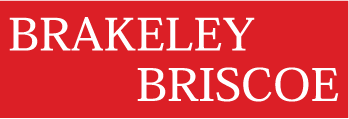Lessons learned by a CDO from “first meetings” with the new Hospital or Health System CEO (boss), when you are the incumbent.
Stuart R. Smith, CFRE, FAHP
Preparing yourself: and the agenda for your first meeting with your new boss.
- Be sure you know your new boss’s background, especially if you were not involved in the selection process.
- Be sure you understand what the recruiting committee stated as the priorities for this CEO to address and credentials for the candidates they sought.
- Pay particular attention to her/his engagement in the philanthropic process in prior employment.
- Try to discern their prior experience with volunteer leadership.
- Be sure you know the opinion of those volunteer leaders from your foundation or hospital development committee on her/his hire/credentials.
- Have your performance record against last year’s objectives available; and objectively understand your strengths.
Delivering on your agenda in the meeting
Open with the usual niceties, but keep it short; reaffirm how much time you have, then continue:
- What are your expectations of me, as your Chief Development Officer?
- What are your expectations of me as a member of the hospital senior management team?
- What are your expectations for the Foundation (Development Committee/Program) I manage?
- What are your thoughts about and your experience with:
• Fund Raising and Philanthropy
• Philanthropy and Capital Formation
• The CEO’s role in fund raising
• The role of the Foundation Board
• The role of the Hospital Board
• The role of Medical Staff
• The concept of the Grateful Patient & Family
Given this information and your own “due diligence” before the meeting, learning these opinions first hand, enables you can to formulate enlightened response to the important issues observed. Some of this dialogue might seem obvious, but let her/him state it. You should not plan to respond, it is really time to LISTEN. You then have time to bring your reaction/answers and specifics back for good dialogue in your next meeting.
Your work directly affects the institutional priorities on her/his “to do” list. You can position yourself and program as value added.
Be sure to reinforce your commitment to the integrity in your relationship and confidentially of the information you share. Again listen.
The Objective: ask your CEO to commit to at least one formal “one on one” meeting monthly, which will carry an agenda built and “rolled forward” (open actions) by you to focus only on philanthropy. Through your reporting responsibility you will meet many more times as needed, but this one meeting a month is important to move and hold accountabilities clear regarding philanthropy for the foundation/hospital/system. Think of it as a “one twelfth” annual review; always relate your agenda subjects to targets, progress and resources. Anticipate hurdles and recommend alternatives.
Remember, you will have many other opportunities to input on all the other senior management “stuff.” Here’s where you clarify that she/he holds you accountable for philanthropy first; all other activity such as community relations, PR, marketing, the auxiliary, etc. and operations activity follows. In the future, missing an operations meeting is understood from time to time because you were addressing the agreed upon first priority for you, fund development. You cannot set this stage too early. It may take several meetings, but it is your expertise in fund raising that got you there and will keep you there.
Anecdote: A former CEO loved our the annual professional golf tournament; if it went well he was my most outspoken defender; however every annual review he began with, “How much money did you raise, did you meet or exceed the goal and then, if the answer was positive; ‘Wow’ wasn’t the tournament was great!” Remember, if you are an Obstetrician you job is to deliver babies; as a CDO, you deliver capital!
